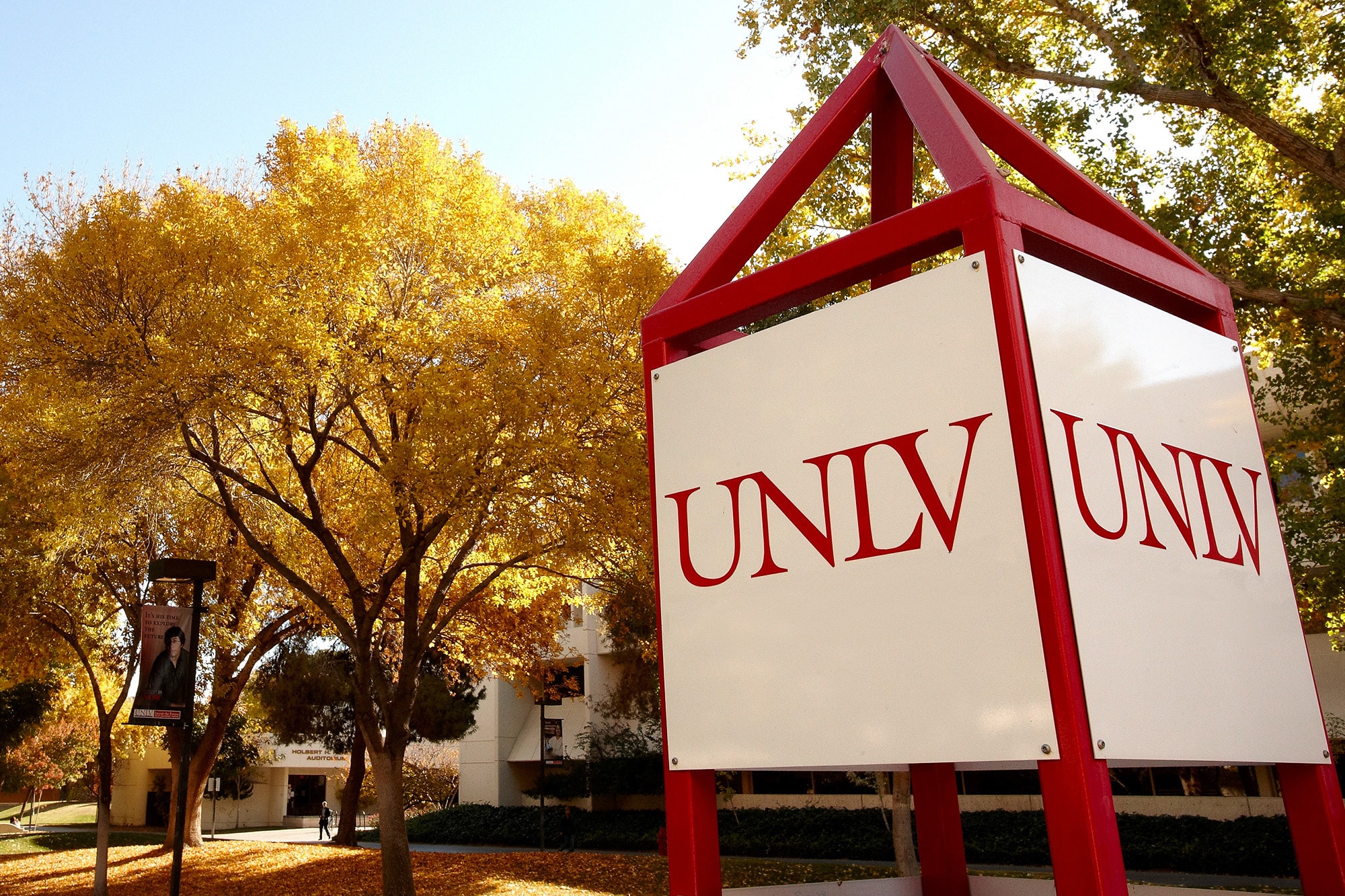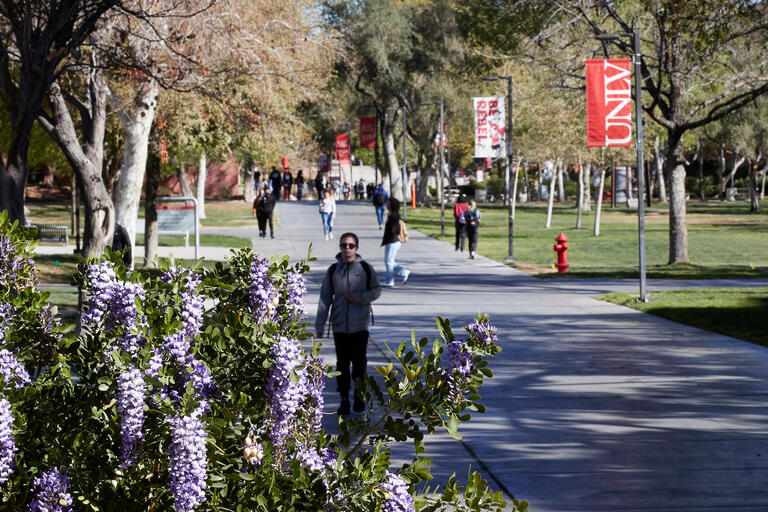For Andy Fry, distinguished professor of history, the decision to remember UNLV in his estate plan was an easy one.
"My wife, Sandy, and I decided to do this because UNLV is where she earned her graduate degree and where I spent my career, so we feel we owe the institution a great deal, both professionally and personally," he says.
The Frys are establishing a bequest through the UNLV Foundation to be added to the John S. Wright scholarship endowment for history students. As he pointed out, "One cannot have a university without students, and in that spirit, trying to aid students seems like a logical thing to do."
Bequests, which are gifts left by will, and other types of planned gifts allow individuals to make considerable donations to UNLV -- and leave a great legacy -- with possible tax savings.
UNLV donors can take advantage of several planned giving options, each of which offers them particular benefits. With a charitable gift annuity, for example, the donor transfers cash to the university and, in exchange, is paid back a sum each year for life. Others choose to create a charitable lead trust, which pays a fixed income to the university for a set term before the funds are passed to heirs or other designees.
Donors Recognized Today for Future Gifts
The Frys' gift intention qualifies them for membership in the Heritage Circle, a recognition society for donors of planned gifts.
Bud Beekman, director of gift planning, says that although most planned gifts are not realized for a number of years, the foundation has developed an immediate and formal way to recognize donors. Alumni and other friends who have designated UNLV in their wills or estate plans, or have made a deferred gift, regardless of the amount, may be included in the Heritage Circle. Currently, it includes 40 individuals whose 25 planned gifts total about $45 million.
"The Heritage Circle acknowledges the present and promises the future," Beekman says. "It's simply a way to say, 'Thank you. We really appreciate what you've done.'"
Heritage Circle members are invited to UNLV events and receptions throughout the year, and are kept up to date on campus happenings.
However, acknowledging a planned giving donor when the university does not know about the gift to UNLV can be challenging. Family members of the donor sometimes cannot be found when the gift matures.
"The donors are not making the donation to get credit, they're doing it to help kids," Beekman says. But, "it's a bittersweet experience when you get a call from a lawyer's office about the gift, but family members cannot be found and there is no one to whom we can express our gratitude."
Over the past four fiscal years, including 2005-06, UNLV received an average of $2 million from the maturation of planned gifts. Donors can designate how they want their funds to be used, which may include establishing scholarships, funding programs, or going toward the greatest need on campus.
Grad Students Benefit from Former Dean's Planned Gift
Another planned giving donor, Jim Frey, retired dean of the College of Liberal Arts, knows how important financial assistance in the form of fellowships can be when earning a degree.
As a master's student at the University of Iowa and a Ph.D. student at Washington State University, fellowships helped him focus on his studies. "It gave me an income while I did part-time work that was related to my field," says Frey, who retired in 2004 after 30 years on campus. "It was much better than sacking groceries at Safeway."
Frey wants to offer UNLV graduate students the same opportunity by establishing a planned gift to fund a scholarship and research support for graduate students in sociology. "It makes you feel good that you're helping students, particularly graduate students, who can use all the help they can get," Frey says.
More info: Contact Bud Beekman about planned giving at 702-895-2841 or bud.beekman@unlv.edu.



